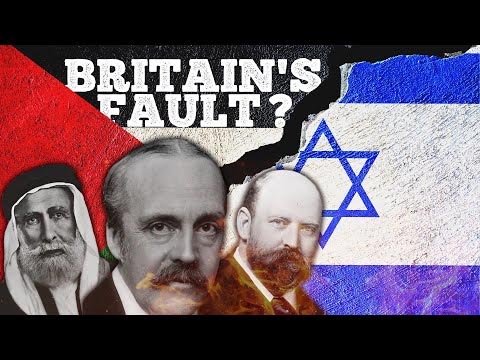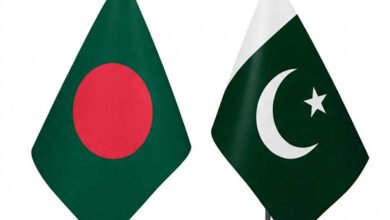Partners in Genocide: The US, Israel, and the Calculated Betrayal of Palestine (Part-III)

PARTNERS IN CRIME
Human Rights organizations, including Amnesty, have made a strong condemnation of the EU’s failure to explicitly denounce Israel’s actions in Gaza, which Amnesty International describes as genocide and war crimes. The EU’s refusal to name Israel, condemn its blockade of aid, or halt arms transfers—despite the International Court of Justice’s warnings—reflects a hypocritical disregard for international law and Palestinian lives. Amnesty calls for urgent EU action to prevent complicity in Israel’s violations, including ending arms sales and economic ties with illegal settlements, rather than offering vague or justifying statements. The statement underscores the dire humanitarian crisis in Gaza, exacerbated by Israel’s siege and bombing, and demands accountability.
As the world watches in horror, the European Union stands as an enabler of Israel’s devastating war on Gaza. The recent report “Partners in Crime: EU Complicity in Israel’s Genocide in Gaza” by the Transnational Institute paints a damning picture of the EU’s political cover, material support, and economic entanglements that have allowed the systematic destruction of Palestinian lives.
Since October 7, 2023, Israel’s military assault on Gaza has led to nearly 40,000 deaths, mass starvation, and the obliteration of essential infrastructure. Despite global condemnation and legal proceedings at the International Court of Justice (ICJ), the EU has failed to impose meaningful sanctions, halt arms transfers, or cut diplomatic ties. Instead, European leaders have doubled down on their unwavering support, even as war crimes unfold before the world’s eyes.
The EU’s failure to act is not an aberration; it is the logical continuation of a colonialist mindset that has shaped its relationship with Israel for over a century. From Britain’s Balfour Declaration in 1917 to the present-day arms trade, Europe has consistently positioned Israel as a strategic outpost for Western hegemony in the Middle East. The EU’s political framework, from trade agreements to military cooperation, treats Israel as a de facto member state despite its repeated violations of international law.
One of the most egregious aspects of EU complicity is its deep entanglement in the arms trade with Israel. Between 2018 and 2022, European countries supplied Israel with over €1.76 billion worth of military exports, with Germany leading the way. European defense companies, flush with public funding, continue to arm Israel’s military, providing weapons, fighter jet components, and surveillance technology used in the relentless assault on Gaza.
While the EU officially upholds human rights standards in arms exports, these guidelines are primarily performative. Countries like Norway and the Netherlands have made symbolic restrictions, but broader European complicity remains intact. The EU has also allowed the transit of US weapons through European territory to Israel, further embedding itself in the machinery of war.
Beyond weapons, the EU has poured millions into Israel’s research and development sector, funding projects that directly benefit its military-industrial complex. The Horizon Europe program, designed to promote innovation, has funneled over €126 million into Israeli institutions, including arms manufacturers. While every university in Gaza has been reduced to rubble, European taxpayers continue to bankroll Israeli universities, many of which have direct ties to the military.
Energy agreements also reveal the EU’s willingness to prioritize business over human rights. Despite acknowledging Israel’s illegal occupation of Palestinian territories, the EU has deepened economic ties, including a 2022 Memorandum of Understanding to import Israeli gas. Even as Israel bombs Gaza into the ground, European leaders actively promote economic projects that secure Israeli energy dominance in the region.
The EU’s refusal to take decisive action against Israel starkly contrasts with its aggressive sanctions on Russia following the invasion of Ukraine. This double standard reveals a fundamental truth: the European commitment to human rights is selective and driven by geopolitical and economic interests rather than universal moral principles.
By maintaining “business as usual” with Israel, the EU is not just complicit—it is actively facilitating a genocide. Every Euro spent on Israeli arms, every political endorsement, and every refusal to impose sanctions serves as a direct endorsement of the atrocities unfolding in Gaza.
It is time for European citizens to demand accountability. Calls for an arms embargo, the suspension of trade agreements, and an end to EU funding for Israeli military-linked institutions must be amplified. Governments that claim to uphold democracy and human rights cannot continue to bankroll war crimes without facing political and moral consequences.
The blood of Gaza stains not only Israel’s hands but also those of its European partners. History will remember who stood by and who took a stand. The EU still has a choice—but time is running out.
THE BRITISH
The Israel-Palestine conflict, one of the most protracted and violent disputes of our time, did not emerge in a vacuum. Its origins are deeply entangled with the colonial machinations of the British Empire, whose contradictory promises and self-serving policies sowed the seeds of enduring strife in the Middle East.
Long before the horrors of the Holocaust, the idea of a Jewish homeland had already taken root, championed by political Zionists who found a willing ally in Britain. The infamous Balfour Declaration of 1917, a letter from British Foreign Secretary Arthur Balfour to Lord Rothschild, pledged support for a Jewish homeland in Palestine—while vaguely assuring the protection of the rights of the Arab majority. This declaration was not an act of altruism but a calculated move to secure British interests, including the support of influential Jewish communities and the strategic control of Palestine as a buffer for the Suez Canal.
However, this was just one of several irreconcilable promises Britain made during World War I. In the McMahon-Hussein correspondence, the British had assured Sharif Hussein of Mecca an independent Arab state in exchange for his revolt against the Ottomans. Simultaneously, the Sykes-Picot Agreement 1916 secretly carved up the Middle East between Britain and France, rendering those assurances meaningless. Palestine designated an “international zone,” became a contested prize, and its people were reduced to pawns in a game of imperial ambition.
The British Mandate (1917–1948) exacerbated tensions. Jewish immigration, fueled by Zionist aspirations and later by the trauma of the Holocaust, clashed with the fears and frustrations of Palestinian Arabs, who saw their land and livelihoods slipping away. British attempts to placate both sides—through commissions, reports, and half-hearted partition plans—only deepened the divide. By the time the British withdrew in 1948, the stage was set for war: Israel declared statehood, and the Nakba (“catastrophe”) displaced hundreds of thousands of Palestinians.
The tragedy of Israel-Palestine is not merely a tale of two peoples fighting over the same land. It is a stark reminder of how colonial powers, driven by greed and duplicity, redraw borders and manipulate destinies with little regard for the consequences. The British Empire’s legacy in the Middle East is one of broken promises, arbitrary divisions, and unresolved grievances—a legacy that continues to fuel conflict today.
If there is a lesson to be drawn, it is this: lasting peace cannot be built on the foundations of colonial deceit. A just resolution demands acknowledging this painful history and addressing its consequences with honesty and equity. Until then, the cycle of violence and suffering will persist. (To be continued)






